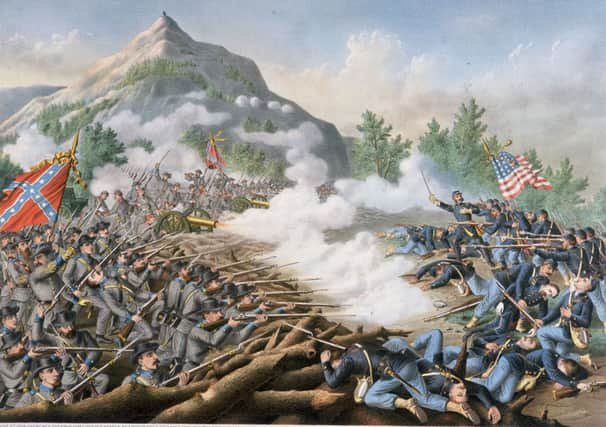Poll tax moves ‘attempt at disenfranchisement’


Political opponents demanded an apology and suggested MacAskill should stand down as justice secretary.
His tweet referred to Aberdeenshire Council’s bid to use the expanded electoral register to cross-check for decades-old debts.
Advertisement
Hide AdAdvertisement
Hide AdMacAskill tweeted: “In southern states of USA post civil war poll tax and other ruses were used to disenfranchise black people. In 2014 we have Aberdeenshire.”
Political opponents reacted angrily. Labour justice spokesman Graeme Pearson MSP said “If Kenny MacAskill spent less time sending highly inappropriate tweets and more time being a competent justice secretary then maybe we wouldn’t be seeing him stumble from crisis to crisis.
“MacAskill is becoming a serious embarrassment for this government and if Alex Salmond is unwilling to … replace him then Nicola Sturgeon must rectify this when she becomes First Minister.”
Liberal Democrat spokeswoman Alison McInnes said: “For Scotland’s justice secretary to compare this to landmark efforts to secure equal rights is equally insulting to the civil rights movement and to Scotland’s councils. People expect and deserve better. He must apologise for this ill-judged late-night tweet.”
The tweet was posted after Salmond mounted a defence of his decisionto block councils pursuing voters for historical poll tax debts, accusing some of trying to “put the frighteners on people”.
Salmond announced last week that legislation would be brought in to prevent the practice after several councils said they would use the details of tens of thousands who registered to vote in the referendum to recover outstanding cash from the tax, introduced in 1989 and abolished in 1993.
An SNP spokeswoman said: “The cynical Tory tactic of announcing they are going to ‘go after’ people who registered, to try to recover 25-year-old poll tax debts, which can’t be collected anyway, is a crude attempt to try to scare people and thus disenfranchise them in the future. It is a disgraceful attack on democracy.”